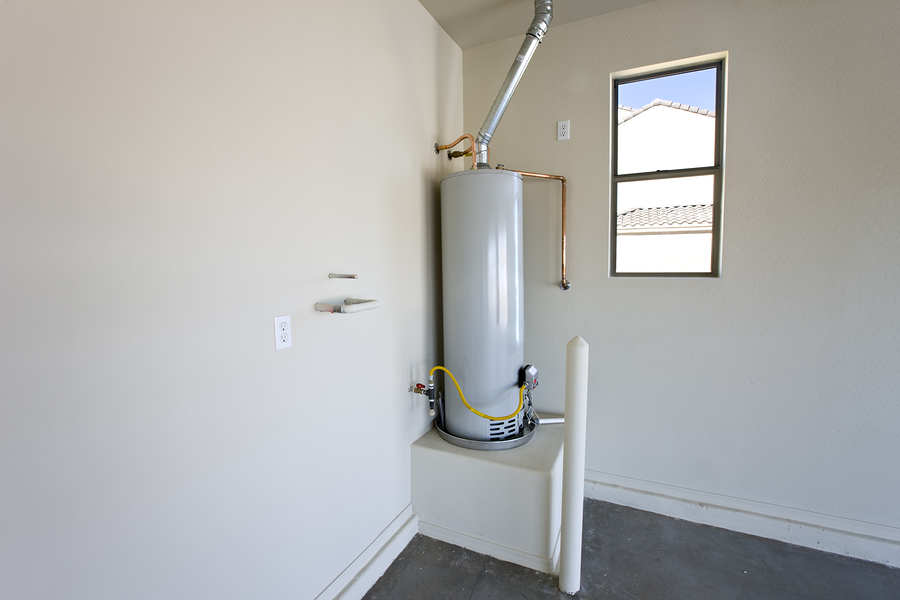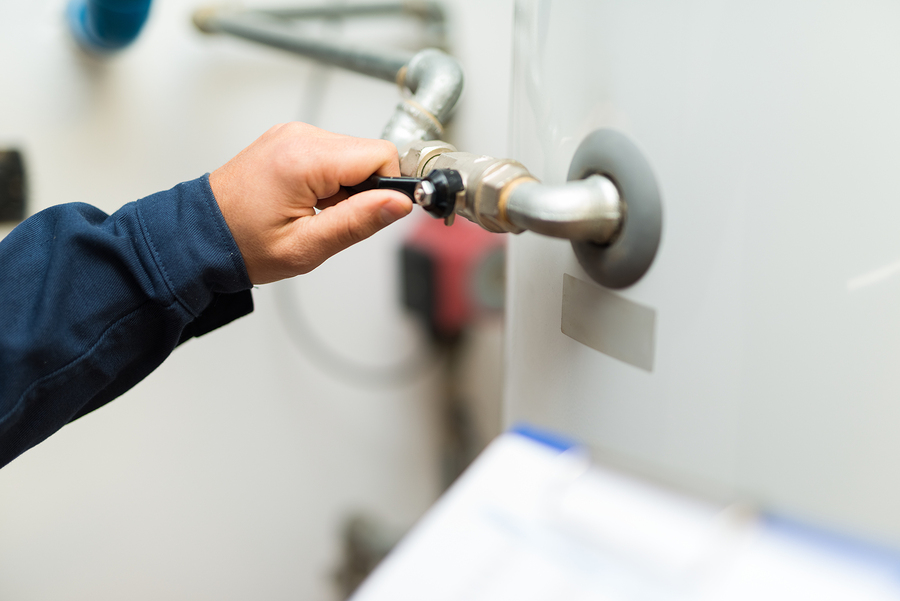Water Heater FAQ
Date: October 3, 2017
ARTICLES
WATER HEATER FAQ
OCT 02, 2017
In all of our years of experience, we have gotten a lot of questions. A fair number of those questions are in regards to water heaters … What are common problems? What should I know about water heater troubleshooting? When should I replace my water heater? … You get the picture. In this article, we answer some of the most common water heater questions we get.
WHAT ARE COMMON WATER HEATER PROBLEMS AND HOW DO I TROUBLESHOOT THEM?
Common water heater problems include discolored or smelly water, a shortage of hot water, leaks and more. The first step to water heater troubleshooting is to first know whether you are dealing with a gas or electric water heater. If you are dealing with a gas water heater and the water is not getting hot enough, you may want to check to be sure the gas is on and that the pilot light is lit. But if you smell gas and it does not dissipate, and especially if the smell is strong, turn off the main gas valve, get away from the area and into some clean air and call us immediately. The other common issue people have with gas water heaters is a pilot light that will not stay on — if this is your case, clear it of any obvious debris. If it still will not light, you may have an issue with the thermocouple that would warrant a professional’s attention.
On the other hand, electric water heaters are a different animal. A lack of hot water is the most common issue we encounter. Before doing any sort of electric water heater troubleshooting, for safety’s sake, you will want to shut off the power to the water heater and check to be sure you are not working in any standing water. If there is not obvious leak and you know that power is getting to the unit, check that the temperature is set appropriately, particularly if you have had some work done on the water heater recently. If that still does not solve the problem, you may consider purchasing and installing new water heating element. They are relatively inexpensive and this can be done easily.
Water heater troubleshooting beyond the aforementioned is best left to a professional.
WHAT ARE SIGNS MY WATER HEATER MAY BE DEFECTIVE?
If you are worried that your water heater may have seen better days but want to pinpoint the issue, look for common signs that your water heater may be defective. This includes things like running out of hot water after a very short span of time, faucets that have to run exceptionally long before the water gets hot, standing water or wet pipes and fittings or, if you have a gas unit, a pilot light that will not stay lit. Any one of these issues — especially standing water or a finicky pilot light — would warrant a call to a professional to assess the water heater sooner rather than later.
WHEN SHOULD I REPLACE MY WATER HEATER?
The first thing to think about when determining when to replace the water heater is its age. Most water heaters last between eight and 12 years. With proper maintenance, it is possible to significantly expand the life expectancy of your water heater, but the reality is that nothing lasts forever.
Other things to consider would be indicators of wear and tear on the water heater including rust and corrosion, inadequacy of water heating and any leaks. If you are truly on the fence about whether or not to replace your water heater, please call us for a professional consultation. Our technicians will be able to look at and assess the water heater to determine if repair or replacement will ultimately be the most efficient and effective option for you and your family.
HOW LONG SHOULD IT TAKE FOR WATER TO HEAT UP?
This will depend on a variety of factors, but as a general rule, if you find that you are suddenly waiting longer than you used to for hot water, your water heater is not working as efficiently as it could be.
However, sometime a wait for hot water is part of the reality of the placement of a given plumbing fixture in proximity to the water heater itself. If you have a large house and you have, say for instance, a master bathroom that is in the area of your home farthest from where the water heater is, it may be a factor of the time it takes for the water to move through the pipes. If your water heater is working properly otherwise, the installation of a recirculation system or a demand system may be just the ticket to fulfill your need for hot water quickly, even at the far reaches of your home.
HOW DO I ADJUST THE TEMPERATURE ON MY WATER HEATER?
Some people want to lower the temperature on their water heaters to cut down on their utility bills and increase their home’s energy efficiency. Others are looking to turn up the heat to get a warmer shower in the morning. Before adjusting your water heater’s temperature setting in either direction, be sure to read the owner’s manual and shut off the electricity to the water heater before you begin. The water heater should never be set above 140 degrees Fahrenheit, as this poses a serious hazard to anyone who enters your home — you can be scalded. Most water heaters have a dial to control the temperature.
WHAT ARE THE DIFFERENT TYPES OF WATER HEATERS?
The truth is, there are far more types of water heaters available than most people realize. The right water heater for your household will depend on multiple factors. They vary based on their energy source (solar is becoming increasingly popular), tankless or traditional, hybrid and more. To adequately weigh the pros and cons of which type of water heater you should get, call us for a quick consultation. Depending on how large your household is, both in terms of square footage and family members, and your typical hot water usage and your priorities, our experienced professionals can help you make a confident and educated decision. And, as with any type of water heater, be sure that it is installed by a reliable technician. All of our work is guaranteed and we have excellent reviews. Call today for a same day appointment!


